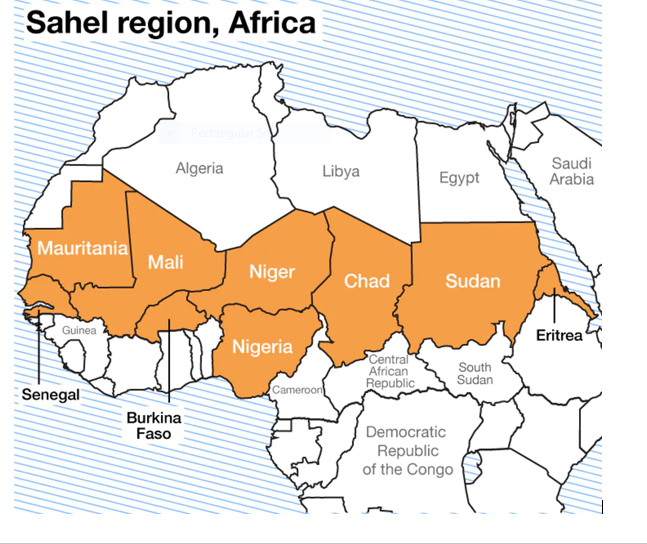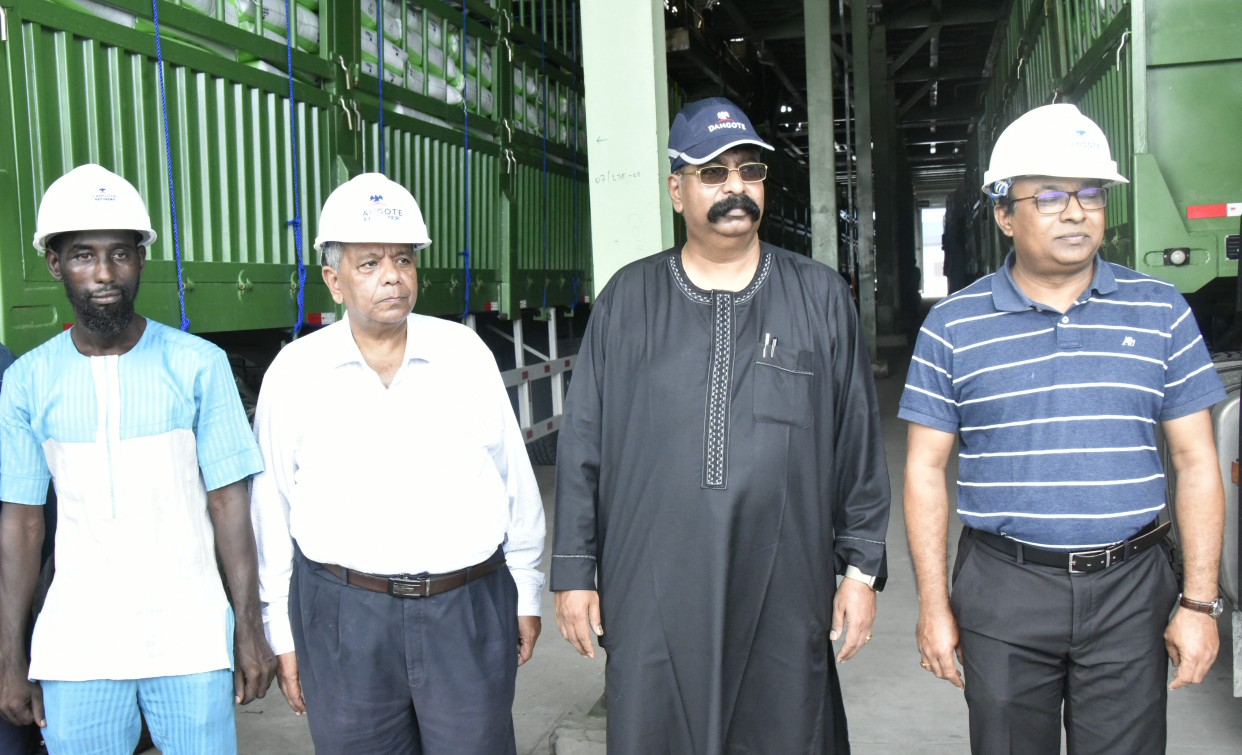10 Characteristics of 10 Jihadist Groups Troubling Sahel and Nigeria

Just as Boko Haram and ISWAP attacks have led to thousands of deaths in Nigeria, Cameroon, Chad and Niger, so have these terror groups caused thousands of deaths in Mali, Burkina Faso and Niger Republic. The Jihadist groups include Macina Libration Front, Islamic State in the Greater Sahara (ISGS), Ansaroul Islam, Katiba Serma, Al-Qaeda in the Magreb Sahara (AQIM), Al Mourabitoun, Katiba Salheddin, Ansar Dine, Jam’at Nusrat al Islam wal Muslimeen (JNIM), and some unaffiliated groups. These groups have a common modus operandi, but operate in different regions and countries. However, in 2017 JNIM was formed as the rallying point for all of them, becoming the international face of the group. A report released by Human Rights Watch in December 2019 showed that between April 2019 and the end of last year, JNIM and its affiliates had killed more than 250 persons in Burkina Faso alone.

Map of the Sahel region where the Jihadists operate
Below are 10 features of these groups:
1. Instigating inter-communal conflicts:
These Islamic sects claim to be Jihadists, but their stock-in-trade is to create intercommunal conflicts as an excuse for bloodshed. Conflicts are caused by cattle theft alleged to be the handiwork of Tuareg nomads. The ISGS operatives engage in mass killing in Burkina Faso-Niger-Mali borders as a result of suspicion over cattle rustling. The conflict is usually between Fulani herders and Tuareg fighters, similar to the situation in North-West states of Katsina and Zamfara State, where cattle rustling is rampart.
2. Attack Christians, government officials, etc
Like Boko Haram, the sects, especially, Ansaroul Islam in Burkina Faso attack Christians and churches, killing priests, congregants and burning down places of worship. HRW reported that “on April 28, armed Islamists executed six congregants of the Assemblies of God Protestant church, including the pastor, in Silgadji village, Sahel region.” The HRW said further that “on November 3, 2019, armed Islamists executed Oumarou Dicko, the Djibo city mayor and parliament member for Djibo province, and two other men after ambushing their car on the road from Djibo to Ouagadougou. A fourth man, the driver, was also shot but survived.”
3. The sects target security forces and military bases
One of the strategies of the armed groups in Mali, Burkina Faso and Niger is to attack security forces, especially at their military base, because the army in these countries are the main hindrance to their murderous activities. Civilians are not organized to confront the jihadists. On December 27, 2019, Jihadists, operating like Boko Haram, attacked a military base in Burkina Faso. A group claiming to be ISWAP issued a chest-thumping statement saying “one of its members drove into the base in Northern Soum province and set off a bomb in the car that exploded, leaving seven soldiers dead and many injured.”
4. They are highly mobile – use motorcycles, tricycles and fast communication equipment
The Jihadists operating in the Sahel region are unlike security operatives who wait for trucks or jeeps before they go on operation. These Jihadist are mobile, and engage, at times, in what is called ‘lone wolf’ attacks on targeted. Using motorcycles, in which case they carry two or more armed militants on each motorcycle, or they use tricycles from which they could swiftly disembark to carry out their violent acts. Reports said they use walkie-talkie and related fast communication equipment. One of the survivors of an attack who spoke to Human Rights Watch said, “I heard the sound of scores of motorcycles…some went to the gendarmerie, others opened fire on us in the refugee neighborhood. I saw 22 of my neighbors dead, including two infants. I survived by hiding behind a clay stove. Two terrorists opened my door but didn’t see me. Then they entered my neighbor’s hut, killing her … They argued about whether to kill her baby…but eventually shot him. The firing only stopped when a plane flew overhead, which sent them running.”
5. They stop farmers from cultivating their farmlands
Like Boko Haram and bandits operating in the North-East, North-West and North-Central, Sahel Jihadists also warn farmers against going to work on their farms. They kill those who disobey their instructions. Another witness who spoke to HRW gave a clear instance in which Jihadists obstructed farmers from their activities: “The jihadists have stopped us from farming and [attacked] a convoy [that] was bringing corn and millet provided by the government to feed about 20 villages. I went to the scene: the attack was a few kilometers from Dablo… Most of the drivers were from there but some of the victims were displaced youth from our communities. I saw 12 men – drivers and their helpers – face down near the road in a line, all shot dead. Several others had apparently tried to flee … We found seven more bodies in the bush. They stole three tricycles of aid – 20 large sacks in each — and burned several others.”
6. They kill army informants/community leaders
There are indications that these armed fighters have credible sources in the security sector in countries where they operate. This is because, like Boko Haram, every time security operatives arrested, attacked or frustrated their operations, the Jihadists would invade villages, kidnap or kill so-called army informants and, in some cases, community leaders. This is similar to how bandits in Nigeria set fire to rural communities where their members were killed or arrested by the police. In HRW report, a victim gave the following testimony about an attack on a community called Pobe Mengao village on October 26, 2019. He said, “They came from the west on motorbikes and motorized tricycles, blocking all paths out. They went house to house, ordering the men out. A military plane flew overhead, and they rushed us into a house. After it left, one jihadist said, in Fulfulde, “You dogs, we told you not to work with the enemies of Allah, the FDS [Defense and Security Forces] and you refused. Will they protect you now? We have no mercy for collaborators.” Then they picked 11 men – they knew whom they wanted – ordered them to lie down. They told the rest of us to get out. … As I fled, the shooting started.” A report by South Africa-based research group the Institute for Security Studies (ISS) says further, “They [jihadists] are deeply rooted in the population, they have a good knowledge of the environment and how to operate within it and they also have information about the military camps.” He added that the connection of armed groups to local economies, conflicts and communities means these groups “will be more difficult to get rid of.”

Soldiers battle ready to fight Jihadists
7. Use both traditional and social media: radio broadcast, Whatsapp, Telegram, Facebook to spread their messages
The Jihadist groups in the Sahel, like those in Nigeria, are sophisticated, and have rhetorical skills to communicate. They use a combination of traditional and social media to achieve their objectives. A research work by Africa Centre for Strategic Studies on the rise in violent extremism in the region said, “Both Koufa and Dicko used their religious credentials as Fulani preachers to promulgate their views. All three groups have used traditional media such as radio broadcasts in conjunction with social media such as WhatsApp, Telegram, and Facebook to spread their messages, stoke tensions with the government, and drive recruitment.”
8. Preach against government/authorities
The groups’ stock-in-trade is to mobilise the people against governments in the Sahel region, just the same way Boko Haram and other bandits in Nigeria express opposition against the authorities. The ISS report revealed that “Ibrahim Dicko pursued [his] strategy by criticizing religious and traditional hierarchies that organized politics and society in Burkina Faso’s Soum Province. Dicko argued that social order in Soum disproportionately benefited traditional chiefs and religious leaders at the expense of the general population. When security forces searching for militant Islamists from Mali employed heavy-handed tactics in Soum, Dicko weaved the events into a narrative of grievance directed at both the central government and the presumed complicity of traditional leaders to launch Ansaroul Islam’s violent campaign.”
9. Foreign support has not diminished their expansion.
At the moment, some international and multinational organisations are working to curb the activities of Jihadists in the Sahel region with minimal success. The regional co-operations include the G5 Sahel Jour Force, European Union Training Mission, United Nations Multidimensional Mission in Mali, and the joint efforts of the countries concerned. Some of these missions have been in the region since 2014, the same year that bandits began to attack farmers in Nigeria, but the armed militants’ attacks have continued to be on the increase, rather than on the decrease.
10. Countries in the region increase security budget, but it’s not enough
These countries, like Nigeria, have doubled their expenditure on security since 2013, but they have not been able to overrun the bandits. For instance, Burkina Faso has increased its military expenditure by 50 per cent and recruited more soldiers. Like Nigeria, Burkina Faso declared a state of emergency in 14 provinces in December 2018, mainly in the North. But the army has not recorded much success because the ISGS traverses the territory easily, crossing into Mali due to the common terrain. Mali has also increased its soldiers through an annual recruitment of 1,500 soldiers; Niger Republic has only 10,000 soldiers, but it has procured more military equipment. In spite of these measures, these countries are still being plagued by the bloody campaigns of these bandits.

Source: Africa Centre for Strategic Studies
Read full reports from sources websites:
1. https://www.hrw.org/news/2020/01/06/burkina-faso-armed-islamist-atrocities-surge.
2. https://africacenter.org/publication/responding-rise-violent-extremism-sahel/
3. https://issafrica.org/media-resources/videos-and-infographics/prospects-for-the-g5-sahel-countries.
4. https://www.france24.com/en/20191227-islamic-state-group-claims-responsibility-for-burkina-faso-attack-on-military-base.
The Insight Report
Nigeria Coverage




Abdurrashid Muhammad Dutsin-ma says:
https://trud.bg/350-diplomatic-flights-carry-weapons-for-terrorists/